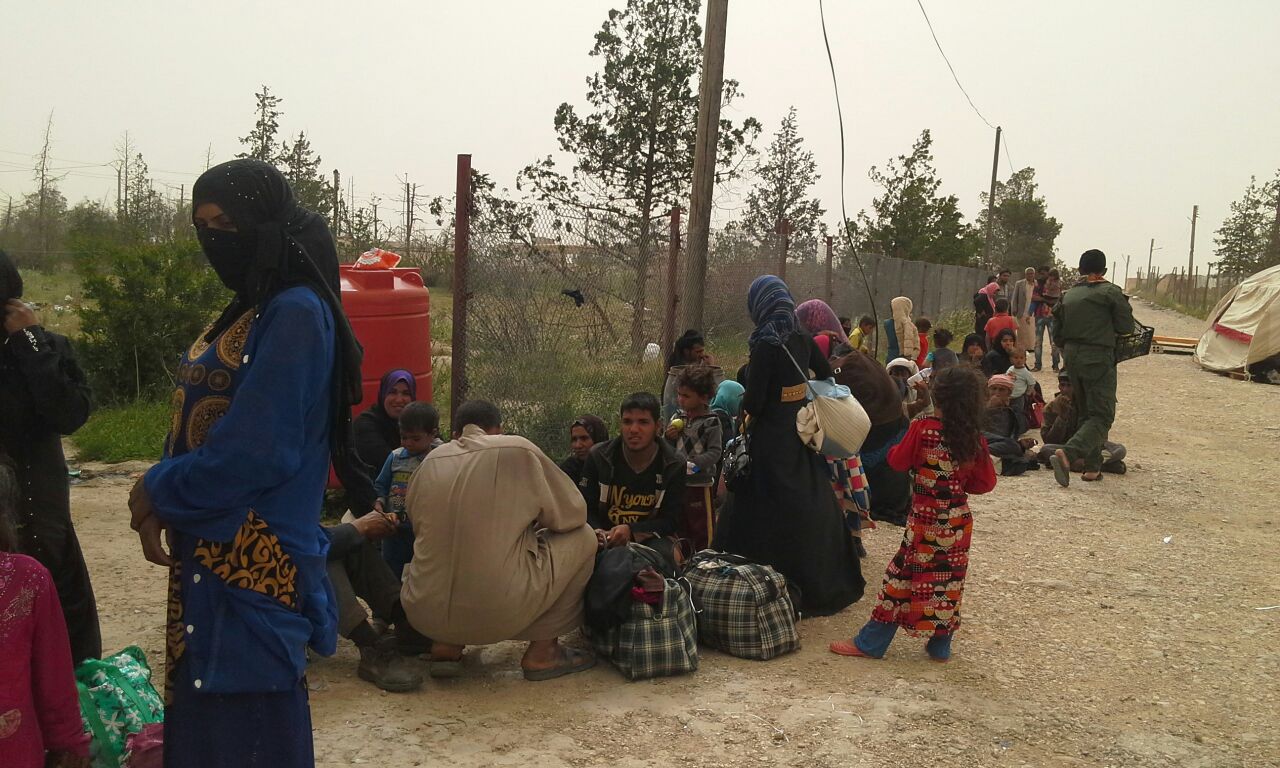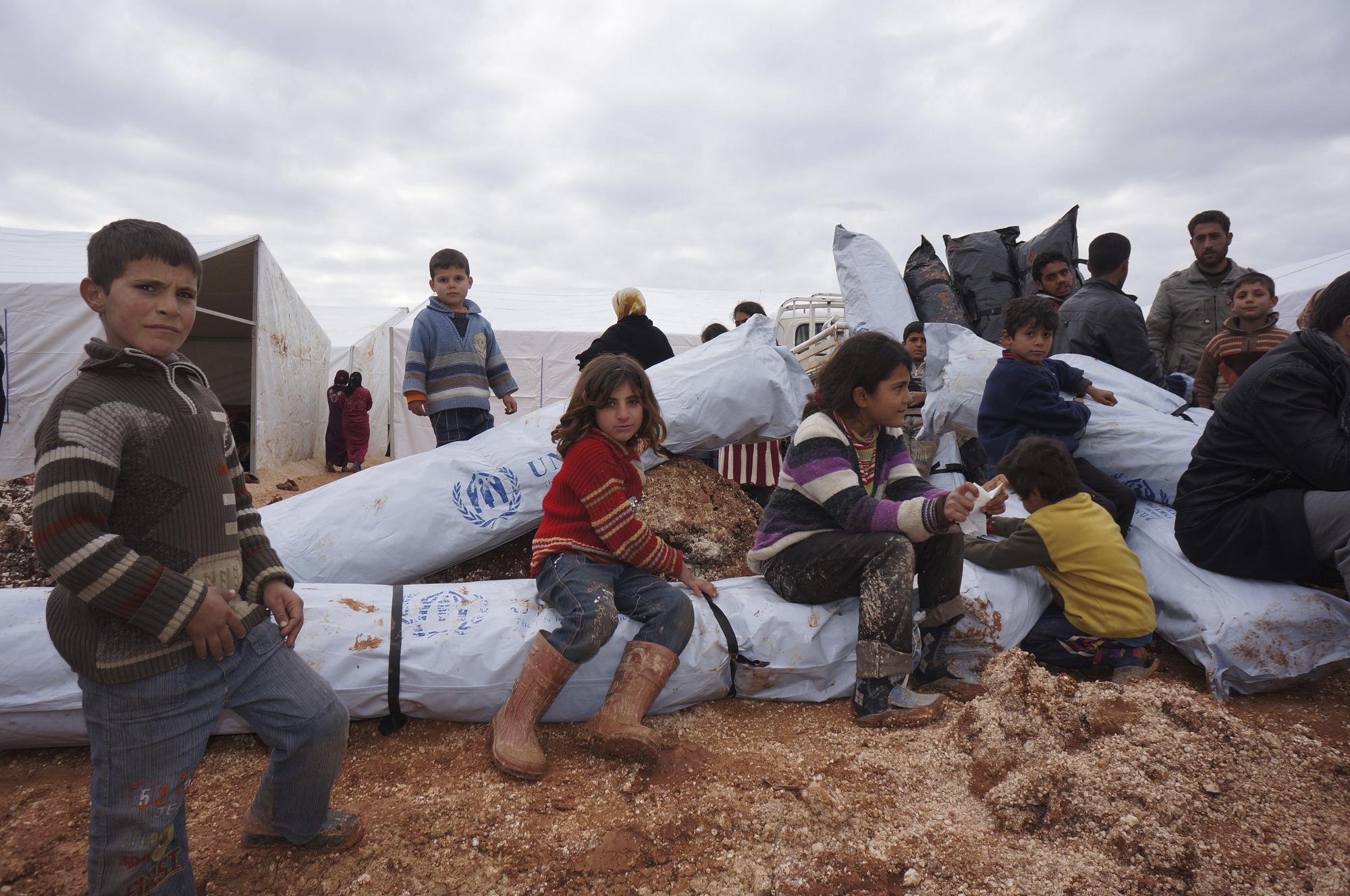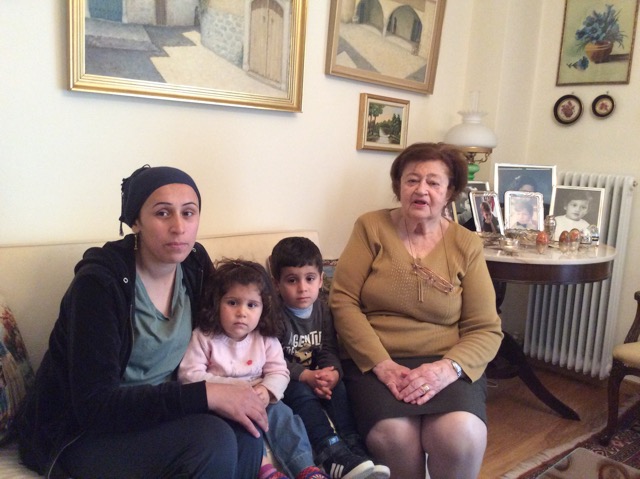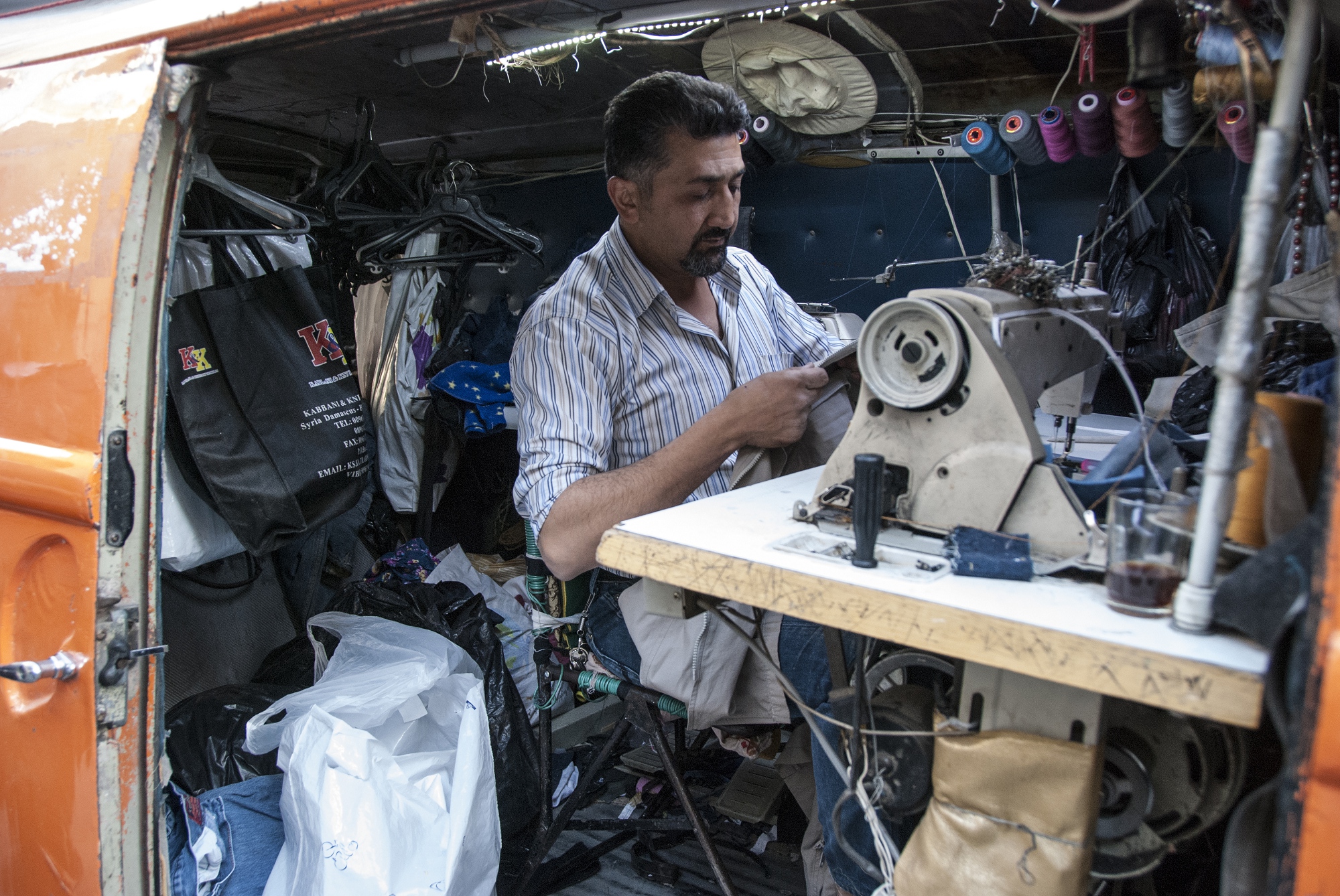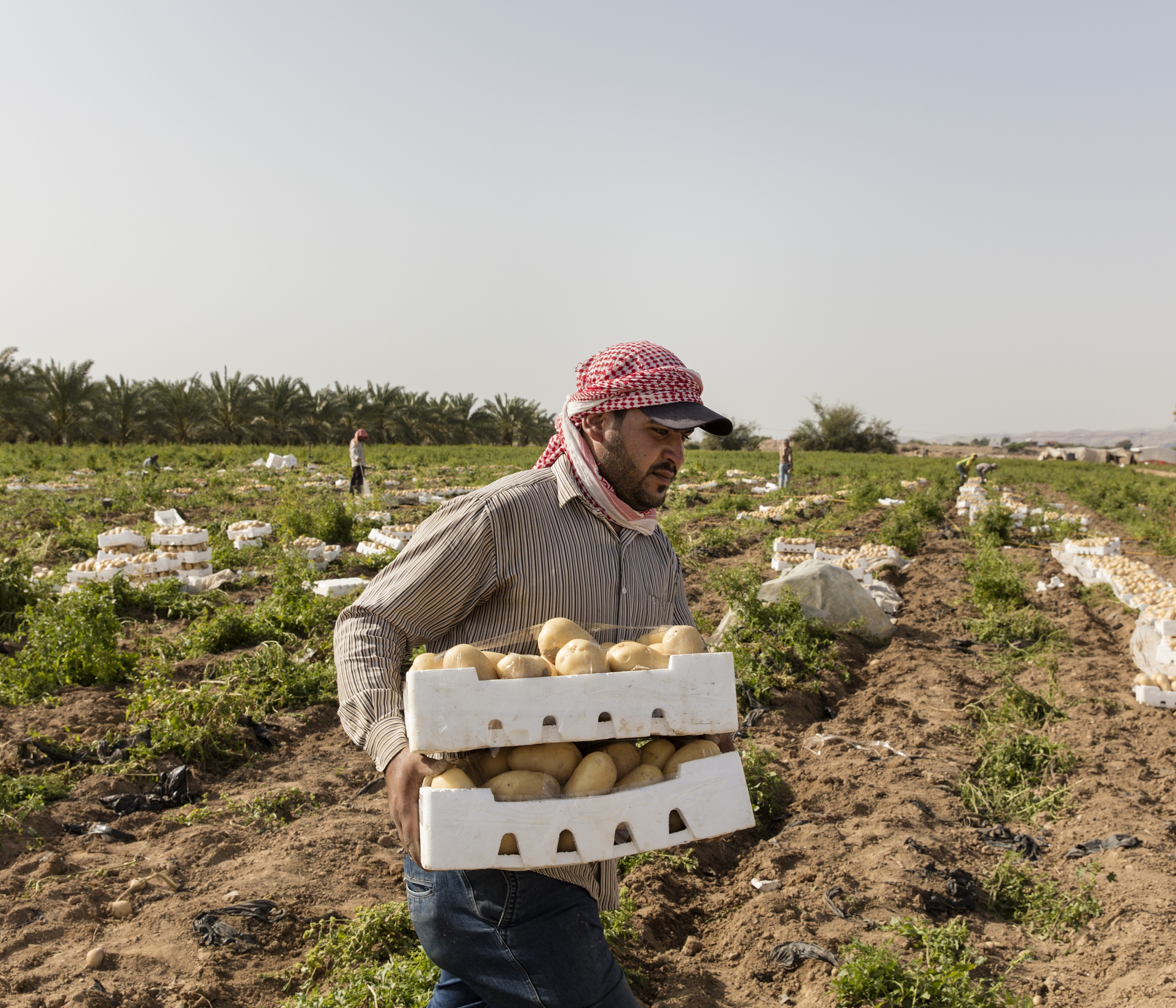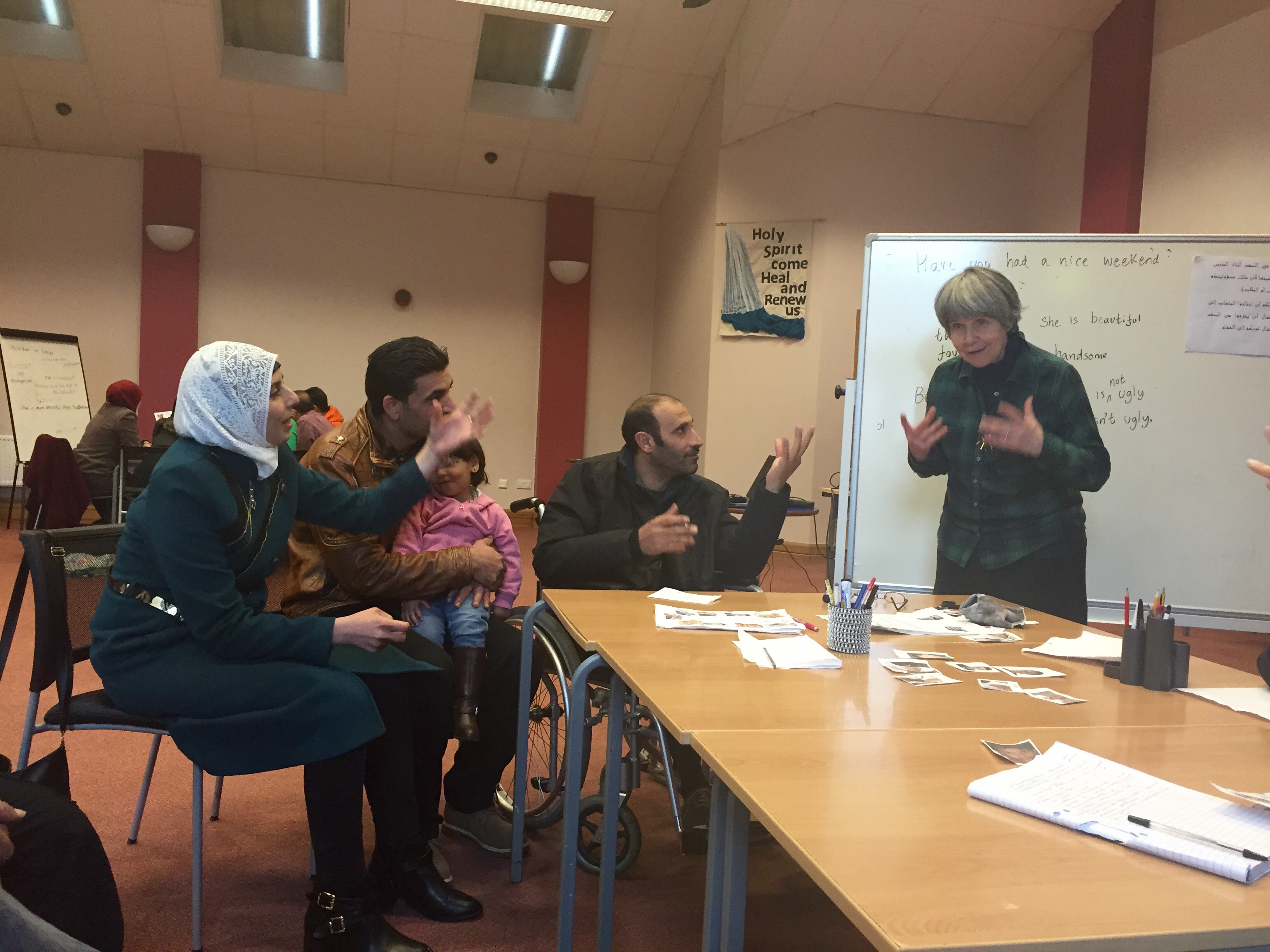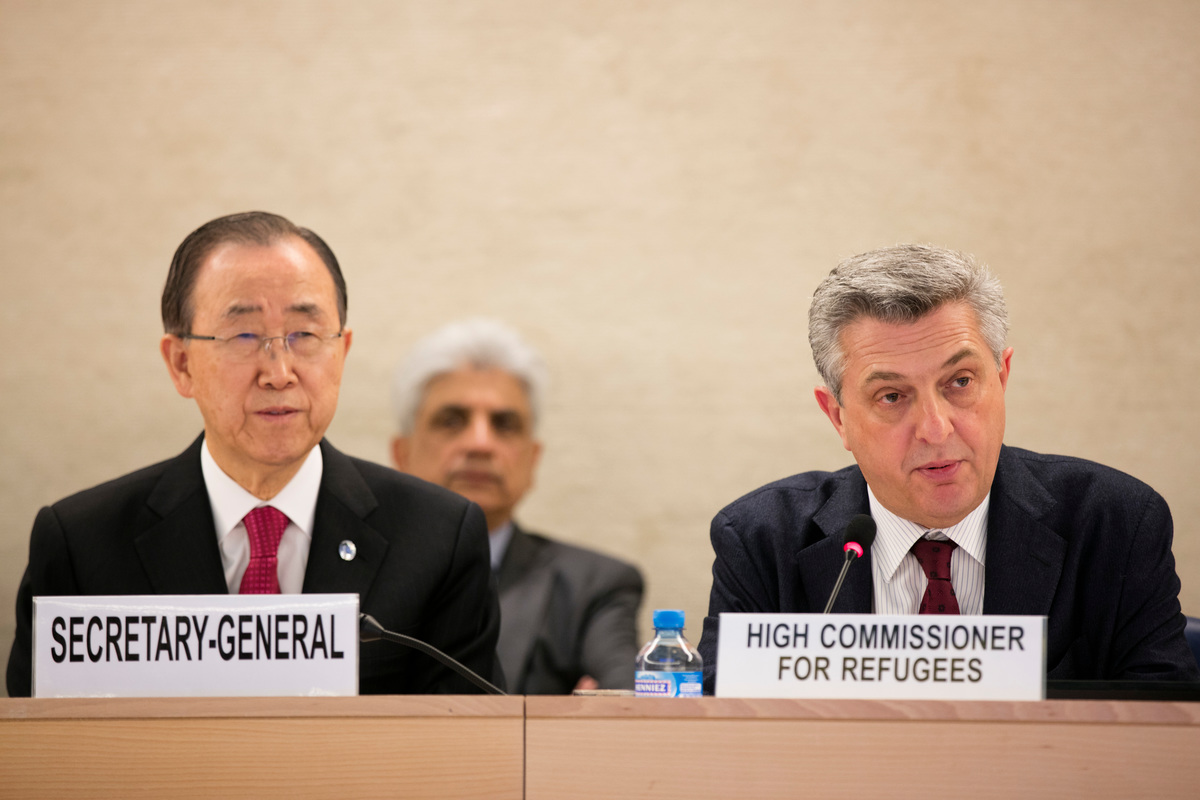UNHCR reaches out to Syrian refugees in Egypt
UNHCR reaches out to Syrian refugees in Egypt

SIXTH OF OCTOBER CITY, Egypt, June 10 (UNHCR) - The UN refugee agency is reaching out to the thousands of Syrian refugees in Egypt who are unaware of the benefits of registration, like unemployed former chef Fadl, who has two teenage sons living with mental disability.
Most of the more than 1.6 million known Syrian refugees have fled to the neighbouring countries of Iraq, Jordan, Lebanon and Turkey, but more than 77,000 have made their way to Egypt. Half of them are women and children. Egypt does not operate refugee camps and these people must fend for themselves until they have registered as refugees.
Fadl and his family chose Egypt, which operates an open-door policy, for a variety of reasons. "We came to Egypt, not only because it was possible for us to come in legally, but also because we heard it was much cheaper than other places," said 42-year-old Fadl.
"I have a lot of extra expenses well beyond a normal family [because of his children]," he said, adding that each of his three young children needed five nappies a day. "That is a lot of money on nappies." So far, Fadl has not been able to find a job, and he worries about paying the rent on the apartment where they live in Sixth of October City.
In Syria, Fadl had run a restaurant with his brother. After the conflict began in March 2011, his life remained relatively unchanged for several months, but then the security situation started to deteriorate in and around Damascus.
In the ensuing violence, Fadl lost his house and his brother's new bride was killed. He decided to seek safety abroad, selling his car and other possessions to raise enough money for the journey to Lebanon and then onwards by air to Cairo. Many other people take a boat to reach Egypt.
When UNHCR first caught up with Fadl in this satellite city of Cairo, he had not tried to register as a refugee because, like a lot of new arrivals, he did not know where to go and he did not realize how important registration was for a family in need, like his own. "We did not know who to turn to," Fadl confirmed, while adding that the help and advice they received came from kindly Egyptians.
"It is only recently that Syrians are starting to come forward to register. Many of them did not do so before out of fear or ignorance," said Mohamed Dayri, UNHCR's representative in Egypt. Reaching out to them has been a big challenge, not helped by the fact that the refugees live all over the country.
"It [registration] is one of our largest priorities since it guarantees them [refugees] access to basic services and to protection in Egypt," Dayri explained. In Fadl's case, this also includes help for his two children living with disability.
"We are also thinking of how to better inform them. The good thing is that the majority of the refugees here have access to the internet and social media, so we are thinking of ways of using those to inform them about our programmes and their rights," Dayri added.
UNHCR has also been deploying mobile registration teams in urban centres such as Alexandria, Damietta and Sixth of October City. And the efforts by UNHCR, which relies heavily on some 300 Syrian volunteers during the registration process, are clearly having results.
As of September last year, only 2,000 people had registered as refugees. Since March, UNHCR has been registering around 2,000 people per week. Registration is a useful opportunity to inform refugees of their rights and how they can access basic services, including health care and education. It also allows UNHCR to identify the most vulnerable refugees and prioritize them for help.
But UNHCR also reaches out to the new arrivals through the Syrian volunteers, who are trained by the UN refugee agency and work alongside its staff. In Sixth of October City, for example, Syrian refugees at the UNHCR-funded Tadamoun (Solidarity) community centre teach languages, maths and vocational classes that can help their compatriots to become self-sufficient.
"Most of us had full time jobs [in Syria] and were active. Working here allows us to do something useful and to feel part of the process of helping our own people," said Yehia Omar, one of the volunteers at the centre.
The Egyptian people have also been giving a warm welcome, even though the country suffers from political and social problems. Locals have taken Syrians into their homes and shared their meagre resources. "They have treated us very well," said Fadl, while adding that he is glad his family came to Egypt rather than Turkey, Jordan or Iraq, which are hosting much larger numbers of refugees, many of them in camps.
By Reem Alsalem in Sixth of October City, Egypt


